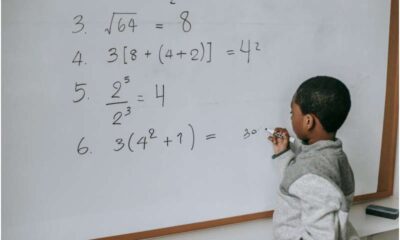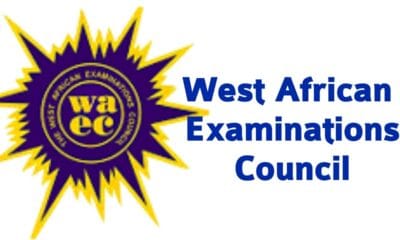Breaking News
BREAKING: FG Drops Mathematics as Mandatory Admission Requirement for Arts, Humanities Students

The Federal Government has approved a new policy that removes Mathematics as a compulsory subject for students in the Arts and Humanities seeking admission into universities, polytechnics, and colleges of education across Nigeria.
The announcement marks one of the most significant changes to Nigeria’s tertiary education entry requirements in decades, as students in the Arts previously had to secure a credit pass in both English Language and Mathematics alongside three other subjects to qualify for admission.
In a circular released on Tuesday by the Federal Ministry of Education, the government said the revised framework was designed to remove unnecessary barriers to tertiary education while still maintaining academic standards.
The circular, signed by the ministry’s spokesperson, Folasade Boriowo, reads in part:
“The revised National Guidelines for Entry Requirements into Nigerian Tertiary Institutions are designed to remove barriers while maintaining academic standards.”
The new guidelines apply to universities, polytechnics, colleges of education, and Innovation Enterprise Academies nationwide.
According to the document, the updated criteria are as follows:
Universities: Minimum of five (5) credit passes in relevant subjects, including English Language, obtained in not more than two sittings. Mathematics is mandatory only for Science, Technology, and Social Science courses.
Polytechnics (ND Level): Minimum of four (4) credit passes in relevant subjects, including English Language for non-science courses and Mathematics for science-related programmes.
Polytechnics (HND Level): Minimum of five (5) credit passes in relevant subjects, including English Language and Mathematics.
Colleges of Education (NCE Level): Minimum of four (4) credit passes in relevant subjects, with English Language mandatory for Arts and Social Science courses, while Mathematics remains compulsory for Science, Vocational, and Technical programmes.
Speaking on the development, Minister of Education, Dr. Tunji Alausa, said the new policy aligns with the federal government’s broader vision to expand access and opportunity within the tertiary education system.
He explained that the reform was part of an ongoing review of academic regulations aimed at encouraging inclusivity and reducing the number of students denied university admission despite excelling in their chosen fields.
“This policy is consistent with our efforts to make education more accessible, flexible, and responsive to the needs of 21st-century learners,” Alausa said.
Reacting to the announcement, education analyst Ayodamola Oluwatoyin commended the Ministry for what he described as a bold and long-overdue reform, saying it would open doors for more students to pursue their passions without being hindered by subjects irrelevant to their career paths.
“This is a brilliant reform that will make tertiary education more inclusive,” he said. “Many students with outstanding performance in literature, arts, and languages have been denied admission in the past simply because they couldn’t pass Mathematics. This change is a welcome relief.”
Education experts say the reform could lead to a rise in university enrolment for arts and humanities programmes, particularly in institutions with large departments in mass communication, law, languages, theatre arts, and history.
However, some stakeholders have cautioned that implementation must be monitored carefully to ensure that quality is not compromised.
The new directive takes effect immediately and is expected to guide all admission exercises conducted by WAEC, NECO, JAMB, and tertiary institutions from the 2025/2026 academic session.
























